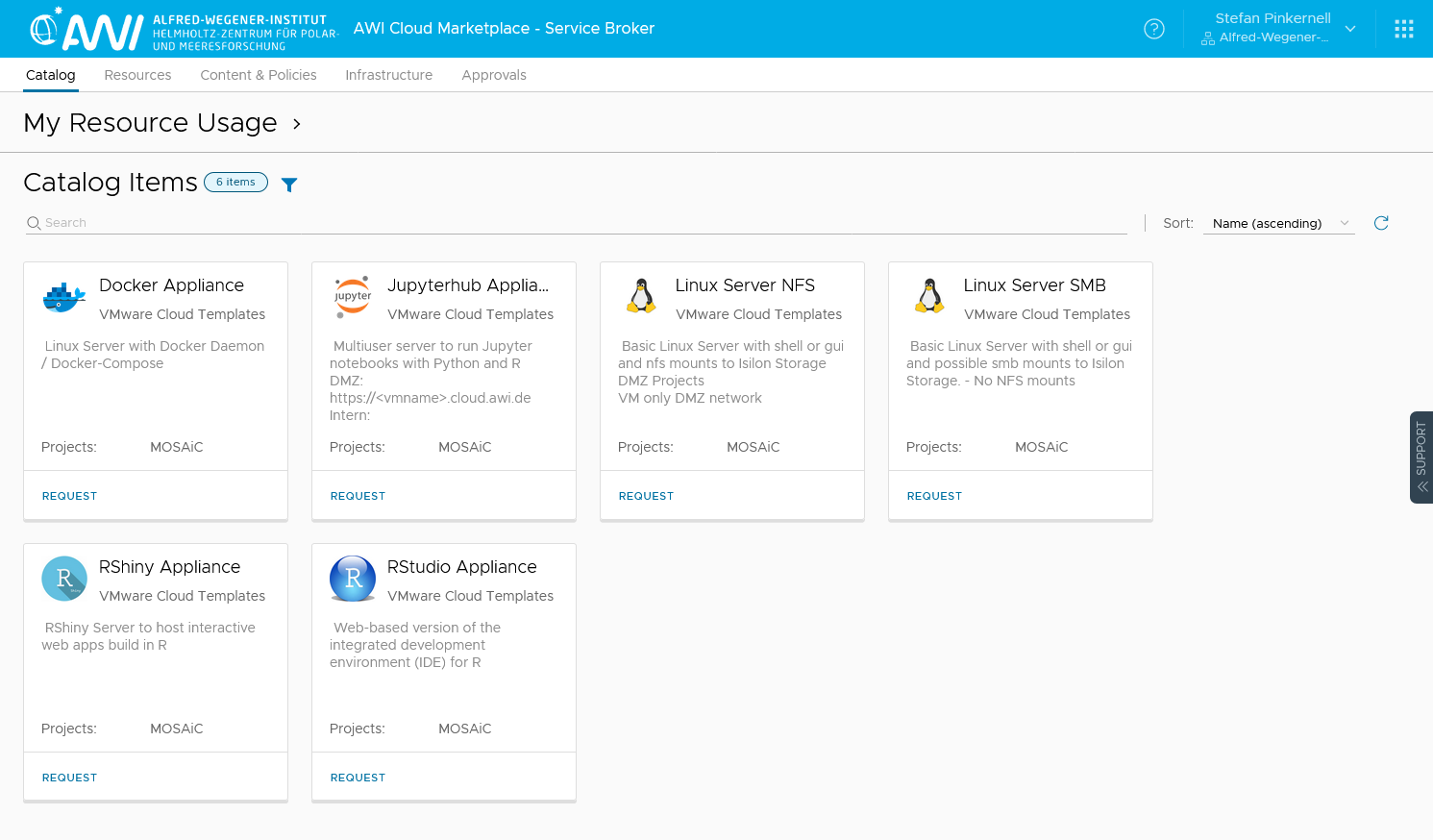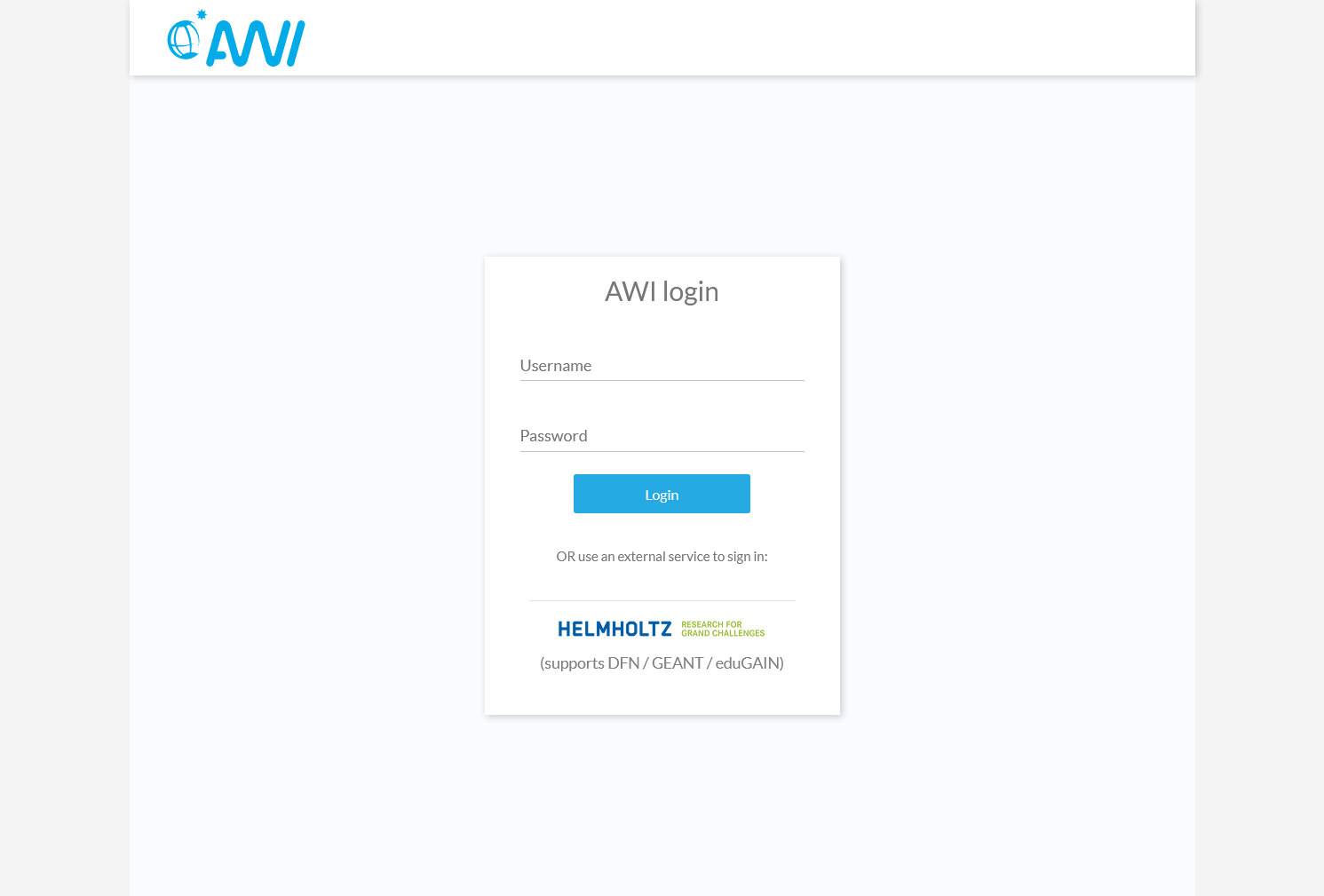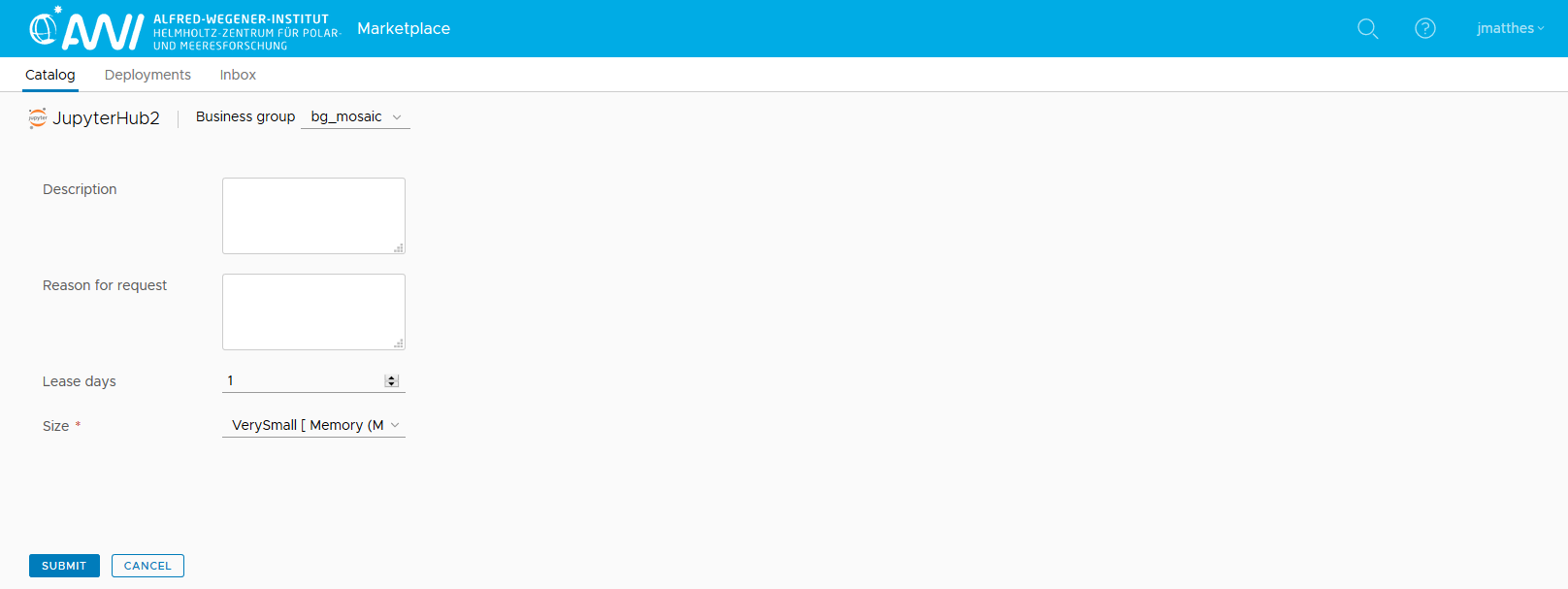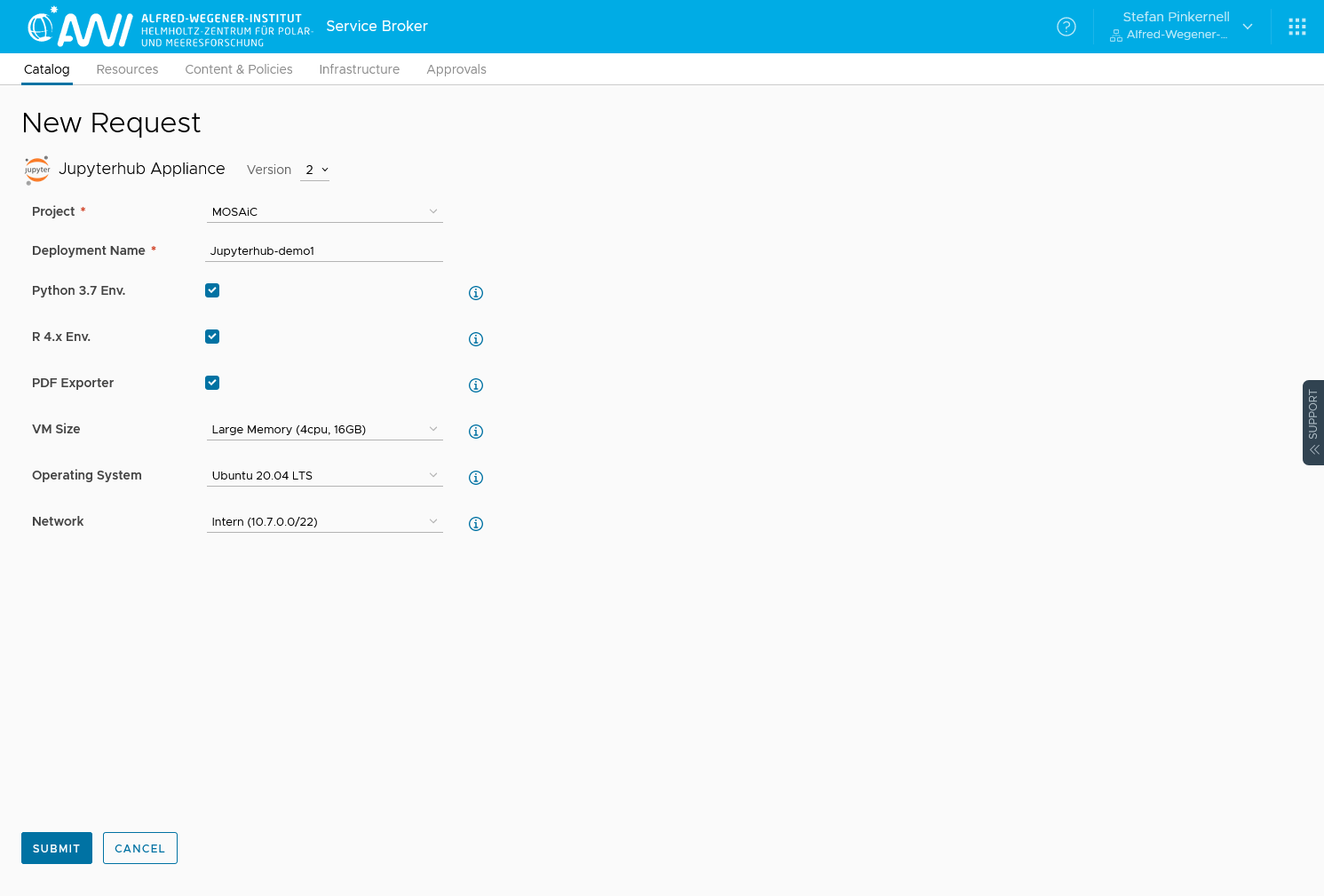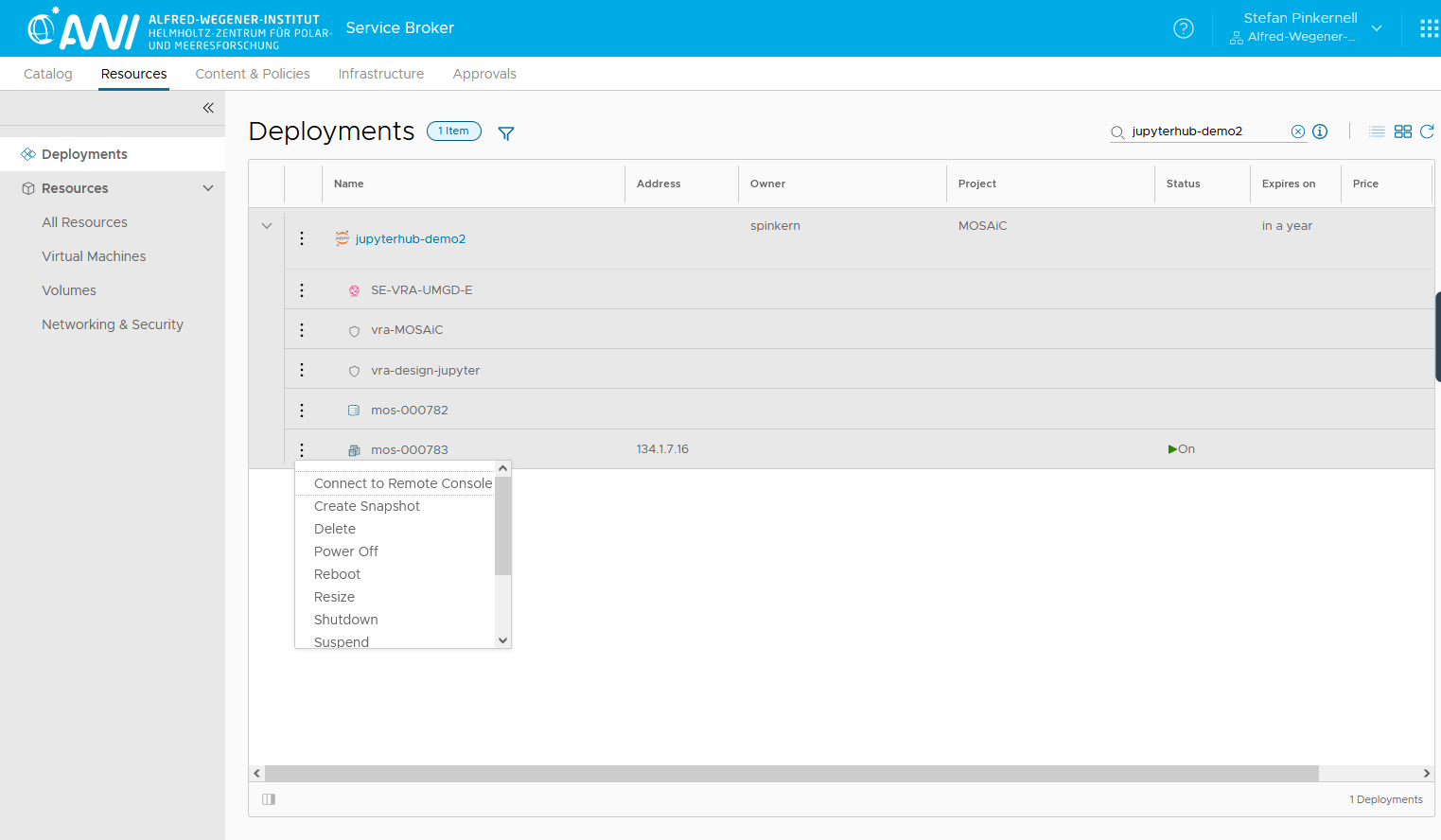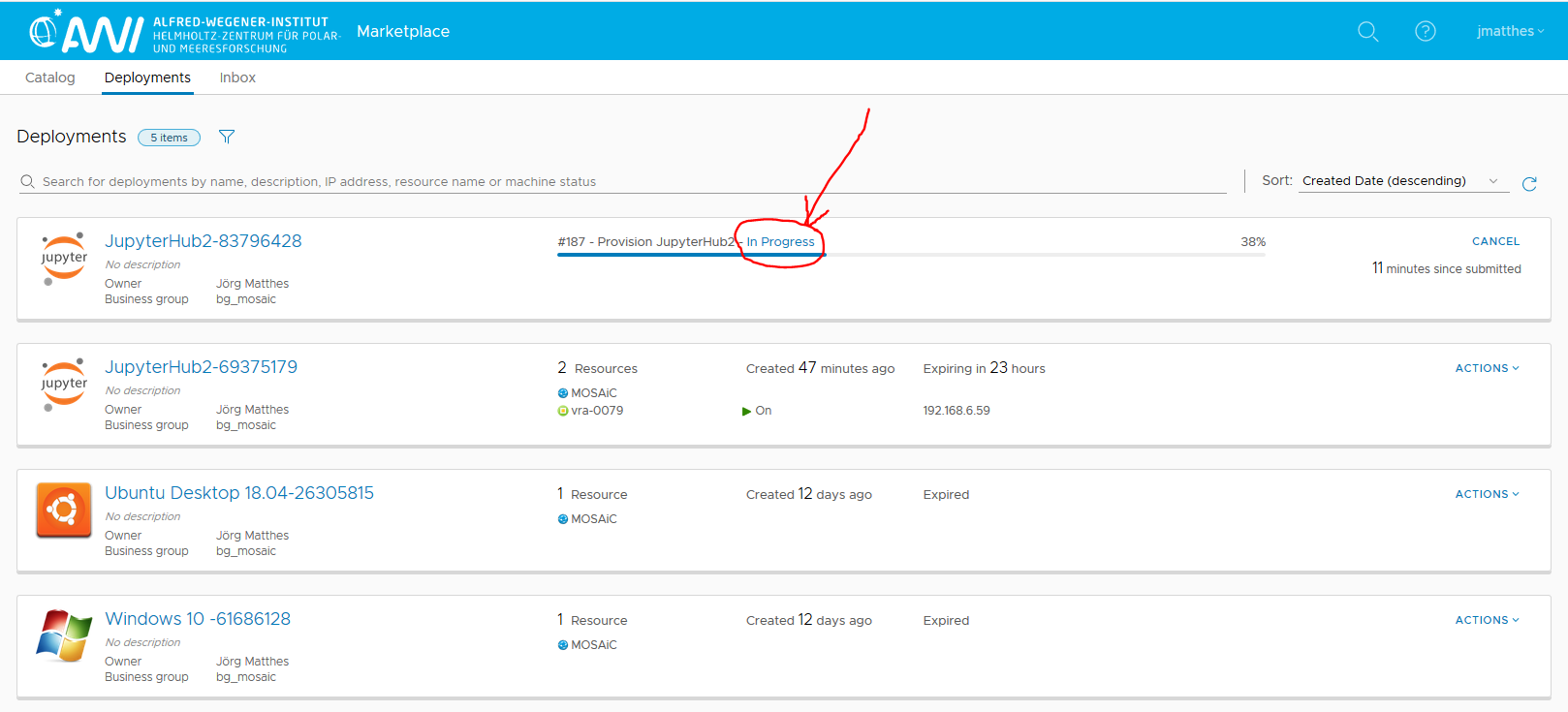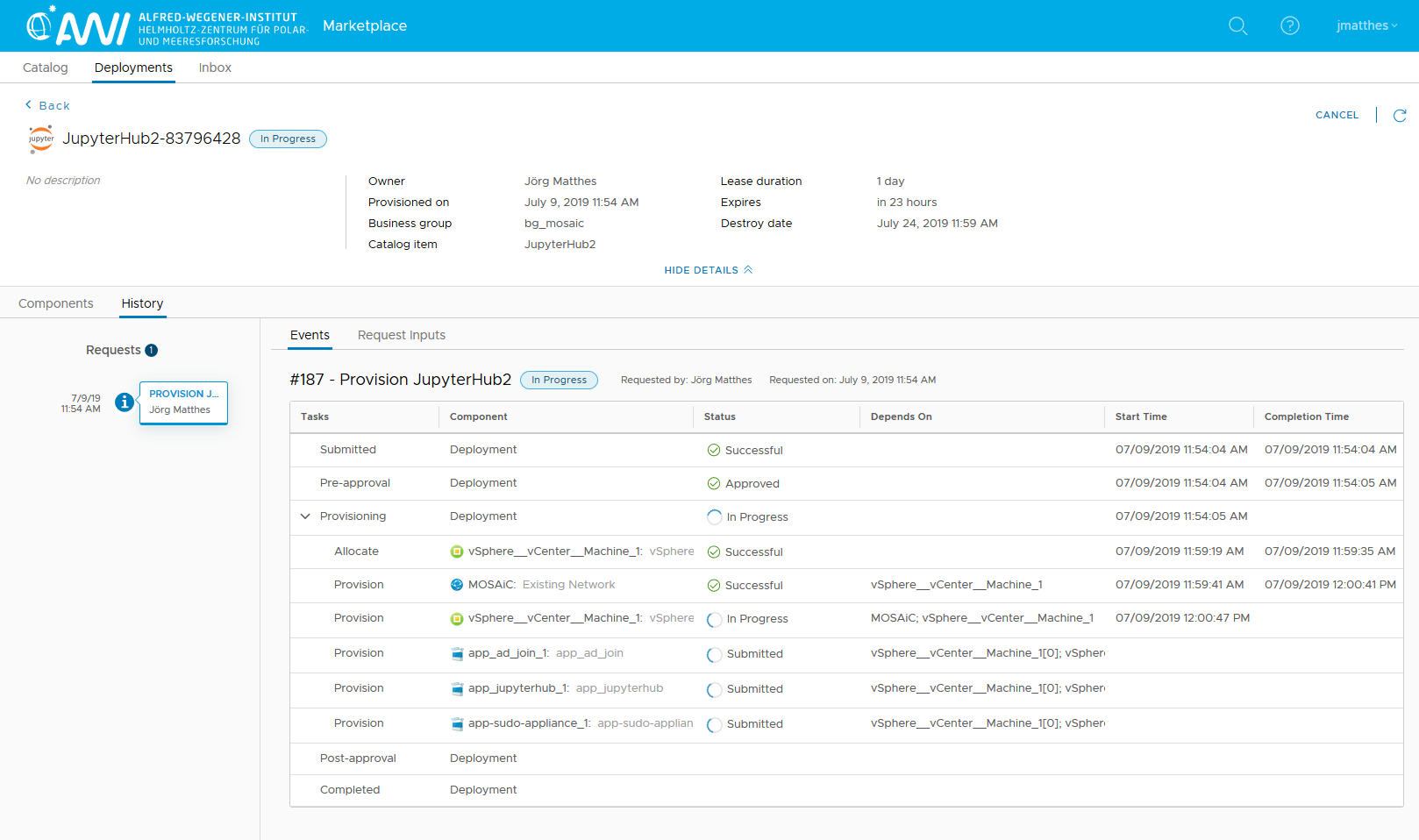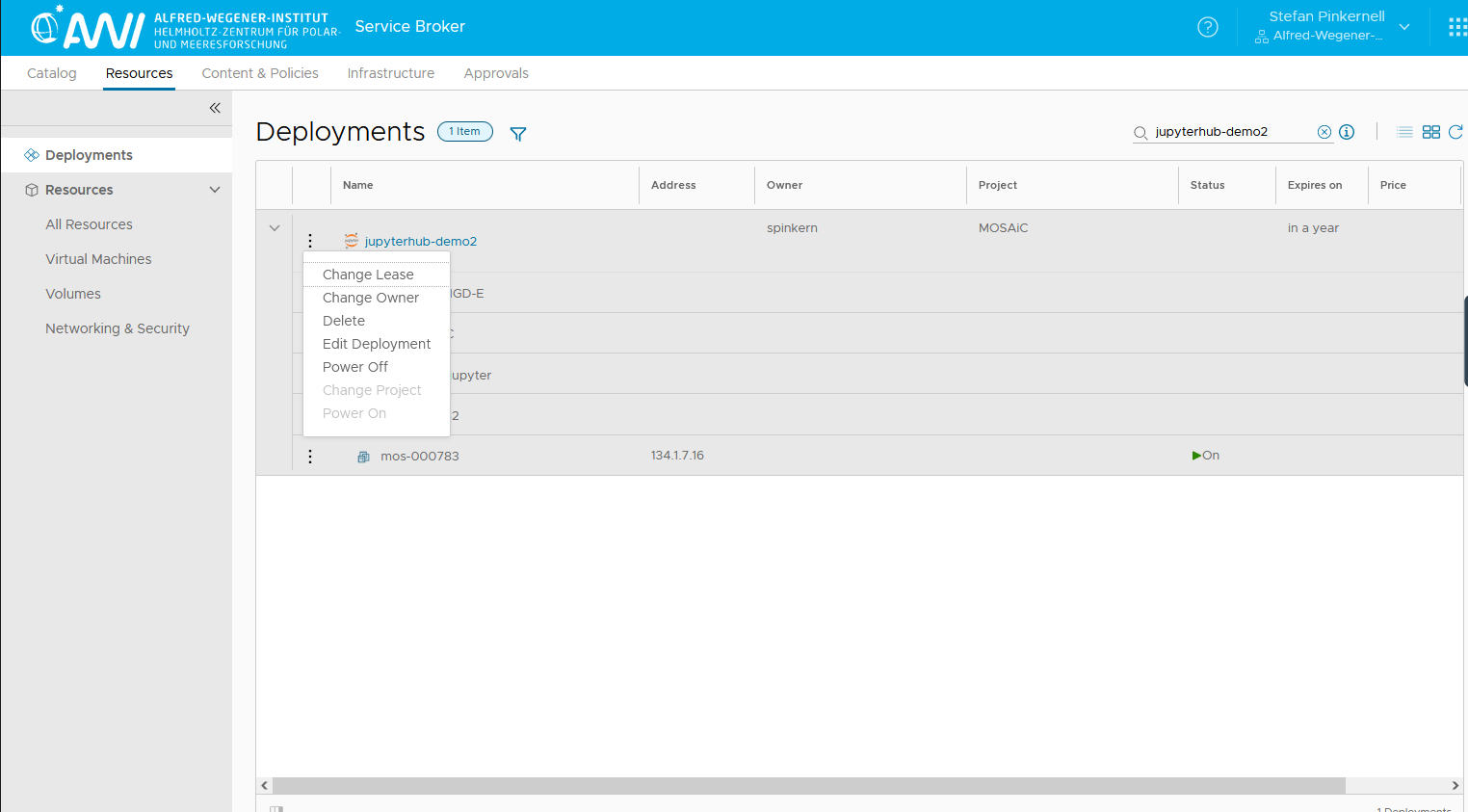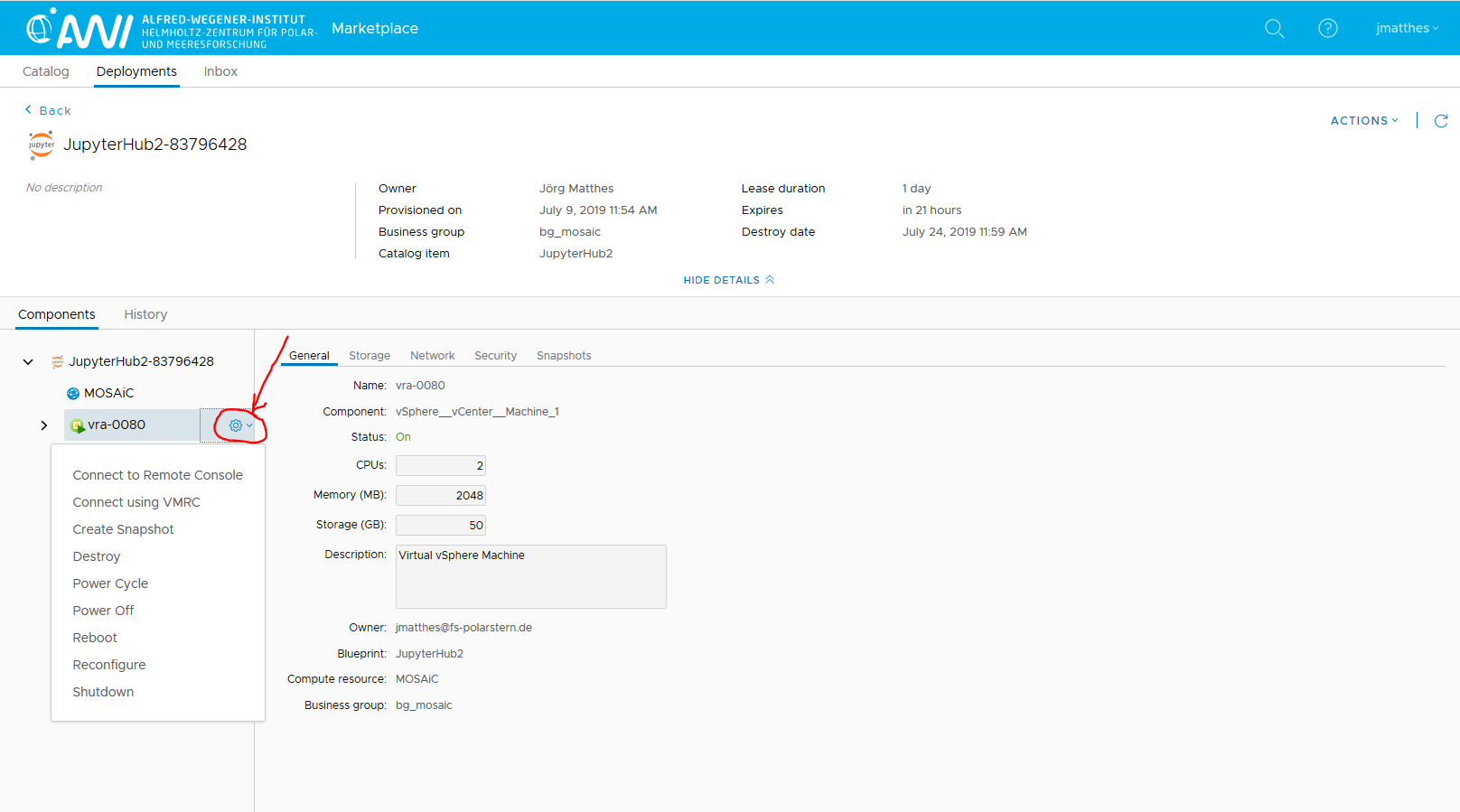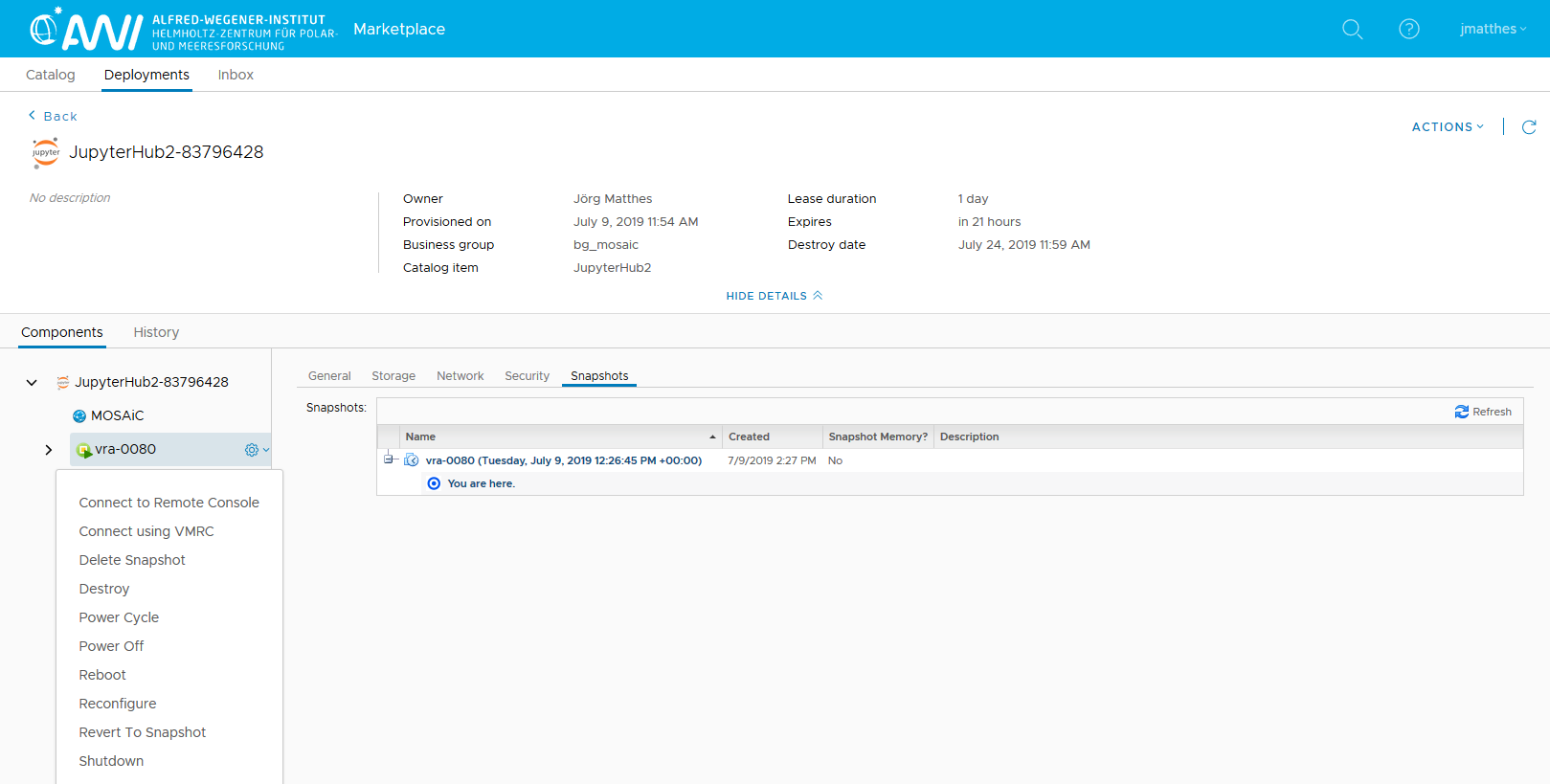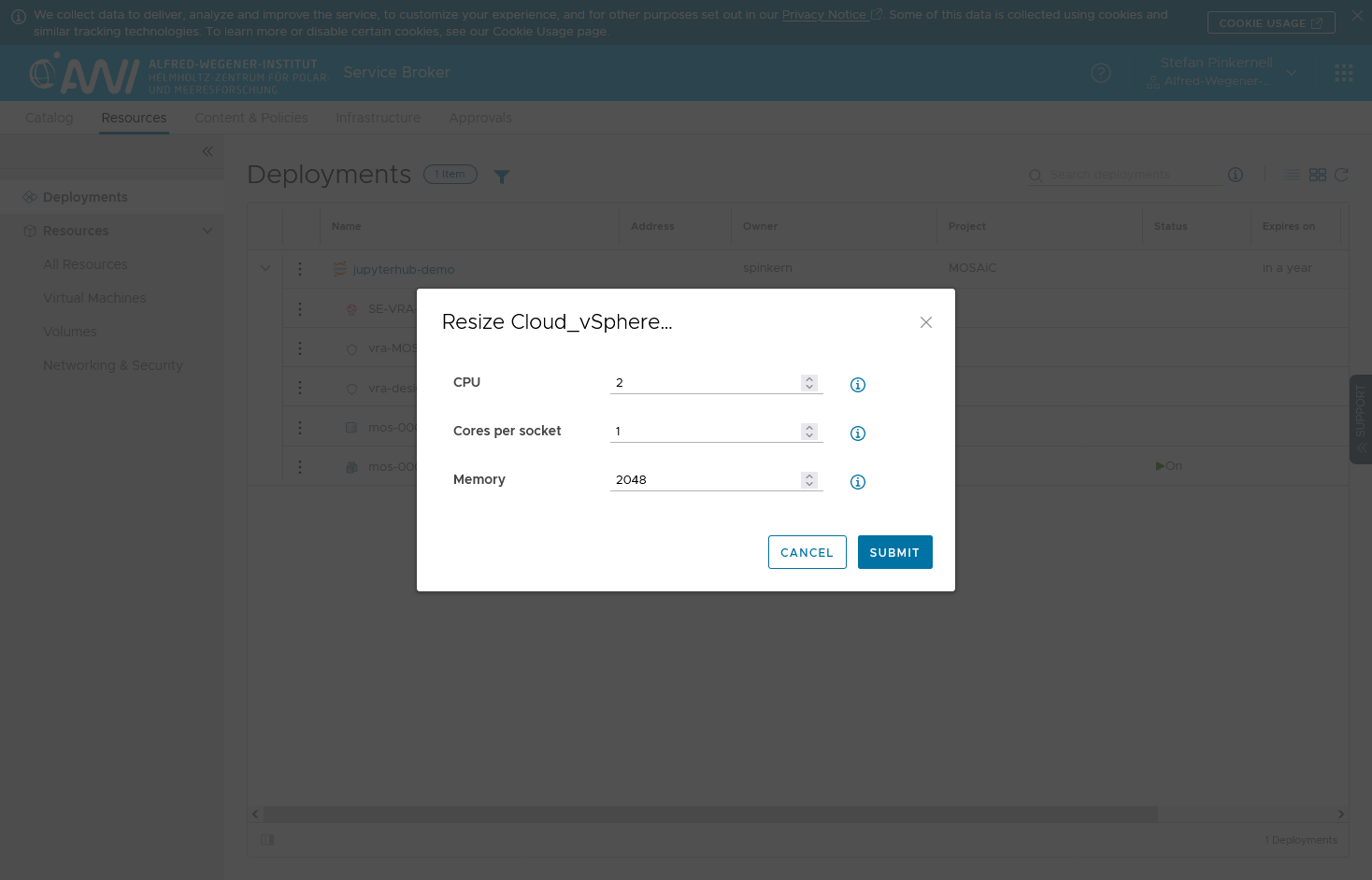Page History
| Excerpt |
|---|
For MOSAiC a self-service portal, the so-called Markteplace is provided |
...
in Bremerhaven. Users can rollout various pre-configured appliances with R-Studio / R-Shiny, JupyterHub, |
...
... as well as |
...
Linux based Virtual Machines. |
...
Marketplace can be accessed via the links on the MOSAiC Welcome Page or |
...
via https:// |
...
...
using the MOSAiC User Account. Please use an up-to-data web browser. |
...
After logging in successfully |
...
, choose "Service Broker" and you will be redirected to the start or catalog page of the self service portal. Several elements are available |
...
on the catalog page. The links to the |
...
pages Deployments dis described in detail later on. CatalogVirtual Machines (VMs) can be requested and rolled out via the Catolog View: Request, roll-out and administrate Deployments (Part 1) - RequestRolling out a Catalog Element using the example of a |
...
JupyterHub. |
...
First a Request has to be performed. To do so the following information has to be provided: |
Description and Reason for Request are optional.
...
Choose Project MOSAiC. Please enter a meaningful Deployment Name (under which your machine will a appear in the deployments section later). The resources CPU and Memory are configured via VM Size. For some Catalog Items, CPU and Memory can also be extended after the time of creation. The storage is fixed though. Data is to be stored on the MCS and should not be stored on the VMs. Other Catalog Items may have further individual fields. These always contain a specific naming or a short help text. You can choose Network:: intern and extern
The Request is sent by clicking Submit and the web site will automatically redirect to the Deployments View if all mandatory fields are filled out correctly. DeploymentsYou can find your personal deployments in the Deployment View. A deployment is either a VM with optional additional software (e.g. JupyterHub), or a VM snapshot, Xaas processes, .... Deployments with status 'in Progress" as well as completed deployments, expired deployments and failed deployments are listed. (Failed deployments should be reported to the data supporters or a system administrator on board.) Additional of a deployment in progress can be displayed. Runtime of completed deployments as well as additional information such as the IP for accessing the VM are listed. Detailed information is further available under Actions of View Details or by clicking on the name of the deployment. See also Request, roll-out and administrate Deployments (Part 3). |
...
Request, roll-out |
...
During roll-out of new deployments or when changing a deployment details of the progress can be visualised along the a list of components that have already been deployed successfully. Messages for failed deployments are also listed here.
Not only a new VM counts as result of a deployment, but also deleting or extending VMs counts as deployment. Also creation of snapshots for an existing VM is a deployment and listed under Process History.
...
and administrate Deployments (Part 2) - AdministrateDeployment Actions |
...
In the Deployments View |
...
, open the details by clicking the arrow left of the deployment name. The menu with the deployment actions opens by clicking the symbol with the three dots next to the deployment name and offers the following Actions: Change Lease Change/Extend the lifetime of a deployment. Change Owner Transfer a deployment to a different user (e.g. a scientist on the next leg) |
...
Delete Immediate deletion of a deployment. |
...
View Details
Change into the detail view of a deployment.
VM Actions
After rolling out a VM within a deployment several actions also known from other virtualisation products from various companies are available to the user.
Connect to Remote Console
connect to the VM via WebBrowser through a Remote Console.
Connect using VMRC
VMware® Remote Console™ offers connections to client devices and access via terminal for VMs on a remote host.
After downloading (for Windows, Linux, Mac User use https://reposrv1.fs-polarstern.de/third/vmware/) and installing VMware Remote Console on your local PC or laptop you can start the external VMware Remote Console Application directly from the vRealize® Automation™-Webclient.
Power Off Shut down a |
...
VM VM Actions |
Create/Delete/Revert To Snapshot Creating, deleting and resetting a snapshot. Only one snapshot at a time can exist. Information about an existing snapshot can be found via the snapshot overview |
...
Snapshot Overview
Power Cycle
...
. Power Off/On Hard power off of a VM (without shutting down the guest system) / Power on a VM Reboot Soft reboot of a VM, guest system is shutdown, afterwards the VM is started again. |
...
Resize Resources of a VM can be configured by the user at a later stage. |
...
Number of CPUs, memory and network are configurable. Max. values of CPU and memory are listed. If this is not sufficient contact the data supporter. Extensions of storage are not available since data shall be sotred on the mounted filesystem of the MCS. Existing volumes can not be changed |
...
. The point in time when reconfigurations are to be performed by be specified under Execution. A reboot may be necessary !!! Per default, this is performed by the system if nothing else is specified under Power Action. Please also check the Info Icon. Shutdown Soft shutdown of a VM. Guest system will be shutdown. |
